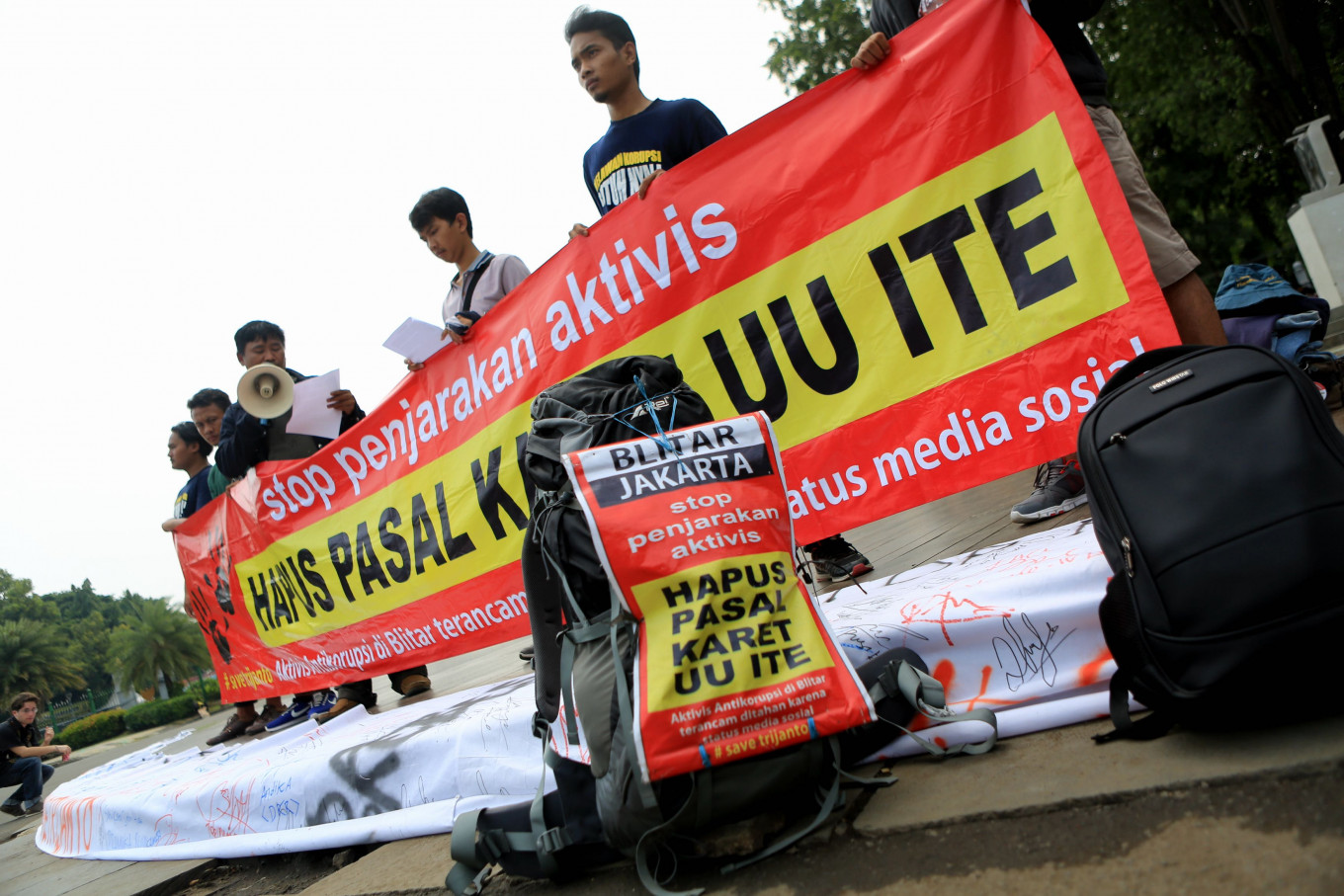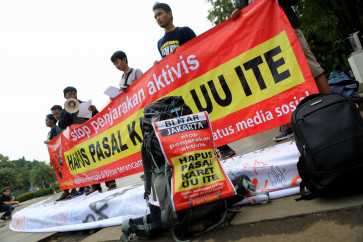Popular Reads
Top Results
Can't find what you're looking for?
View all search resultsPopular Reads
Top Results
Can't find what you're looking for?
View all search resultsWill Indonesia’s digital activism overrule its representative democracy?
One can easily claim to have internal data or big data of hundreds of millions of people supporting a policy or a decision. In reality, the 'support' may just consist of bots or people paid to write content and tweets.
Change text size
Gift Premium Articles
to Anyone
I
n a country where its people are outsiders, social media rules. The world has repeatedly seen how social media is able to generate social change. The world has also seen social media progress from being an organic space for people to voice their concerns to becoming one which is fabricated with buzzers to shape false information and generate false conclusions.
The term “no viral, no justice” is not new in Indonesia. The Manpower Ministry changed the pension plan policy after an outcry on social media and an online petition at Change.org supported by 400,000 netizens. The State-Owned Enterprises Ministry changed their paid vaccine policy after thousands of netizens shared their concerns on social media, especially Twitter. The police of east Luwu regency finally reopened a sexual assault case only after it started to gain attention on social media.
Given this new status quo, can we conclude that it is a good sign for Indonesian democracy, or rather a warning sign of a crumbling one? And will our clicktivism finally overrule our representative democracy?
Let us take a look first at how Indonesian democracy is, digitally. We are not yet talking about the metaverse, but rather: who are the digital population, how do they interact and what are the results of this digital democracy.
First, the digital population. While Indonesia is considered the country with one of the largest numbers of social media users in the world, the digital population does not represent the whole of the general population. Indonesians who are connected to the internet usually live in urban areas, leaving the voices of those living in rural areas unheard.
Second, the interaction. Most Indonesian public officials, including those in the legislative and executive branches of power, are now active on social media. They often open their space to connect to the people, taking in their concerns and sharing their achievements.
Third, the result. As stated above, there are often policy changes as a result of the interaction between Indonesian digital users and their political representatives. The results affect not only the national population, but can also impact local areas, which happens often in cities or even villages.



















